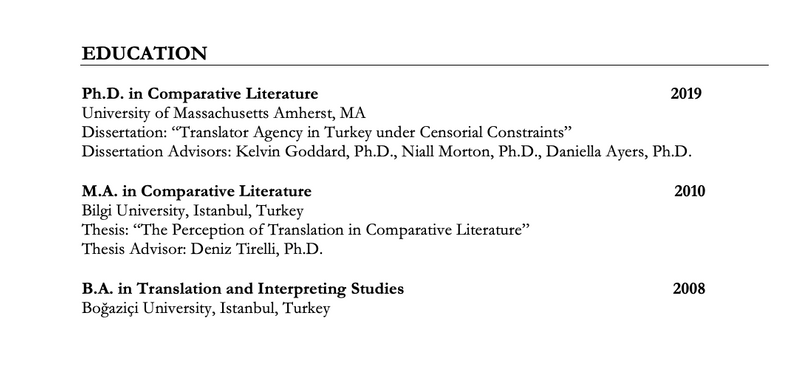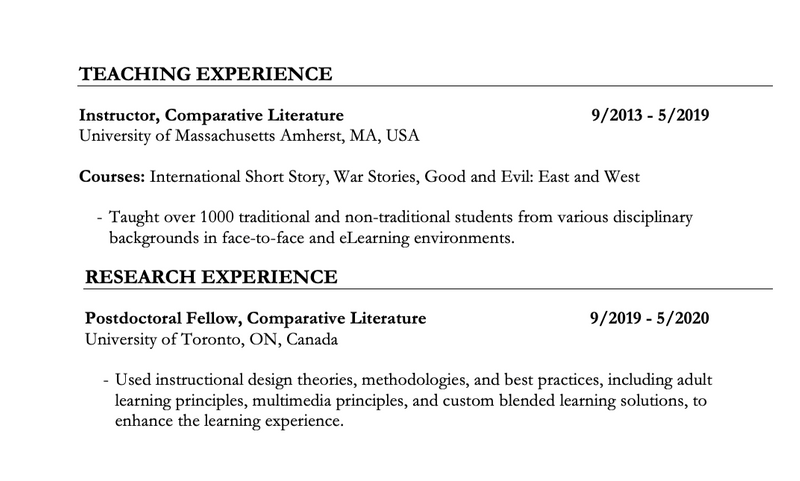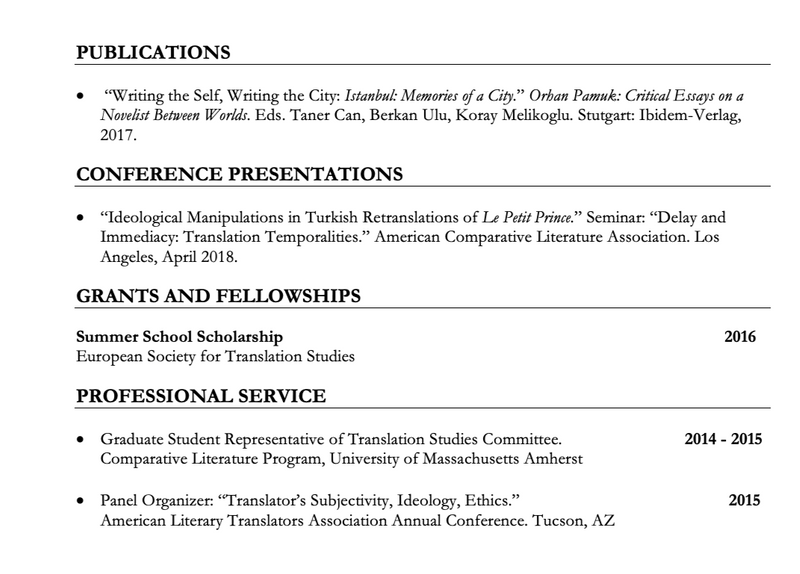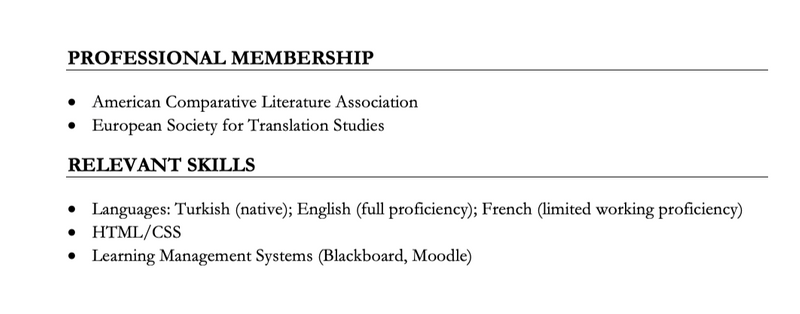You might already have a perfect resume. So why create a Curriculum Vitae (CV)? Because they're different documents with different functions!
A resume summarizes your skills and work experience while a CV details the whole course of your academic career.
A CV is one of the most important application materials on the academic job market. Your CV will effectively present what you have to offer if you plan well in advance and spend enough time to draft, write, and edit your CV.

Academic CV Format
There is not one way of preparing a CV. However, keep three things in mind:
1) Compile a master CV that includes a comprehensive record of your education, activities, experiences, and accomplishments.
2) When you're ready to apply, tailor the sections and the order of the sections to the specific position, and cut the parts that are not applicable.
3) CVs are only skimmed, not read word by word. Avoid long paragraphs and use simple bullet points in a readable and professional font.
Quiz
You should be consistent and send the same CV to every open position.
What To Include In A CV?

You might feel overwhelmed while creating your CV and can't decide what to include and exclude!
Here is a checklist of all the necessary and optional sections for your CV. Remember that your need to highlight the most relevant sections to the position you're applying for.
Section 1 - Contact Information
Full name
Phone number and a professional email address
Mailing address
Your website and/or LinkedIn URL if relevant

Section 2 - Education
List in reverse chronological order the undergraduate and graduate institutions you attended
List the institution, location, degree, and date of graduation
If applicable, include your dissertation title and your advisors

Section 3 - Experience
List your employment history in reverse chronological order
Include position details and dates
Based on your field, you might break this section into multiple sections, such as "Teaching Experience," "Research Experience," and "Administrative Experience."

Section 4 - Accomplishments
List your accomplishments with titles, dates, and any relevant information, such as:
Publications and conference presentations
Honors and awards
Fellowships and grants
Academic service
Licenses and certifications

Section 5 - Optional Categories
Depending on your field and the specific position you're applying to, the following sections can also be included in your CV:
Languages
Technical skills
Relevant coursework
Research and teaching interests
Professional affiliations
References

Quiz
Which of the following is not an essential section of an academic CV?
Take Action
Congratulations, you have created your master CV! Now it's time to...

Your feedback matters to us.
This Byte helped me better understand the topic.
